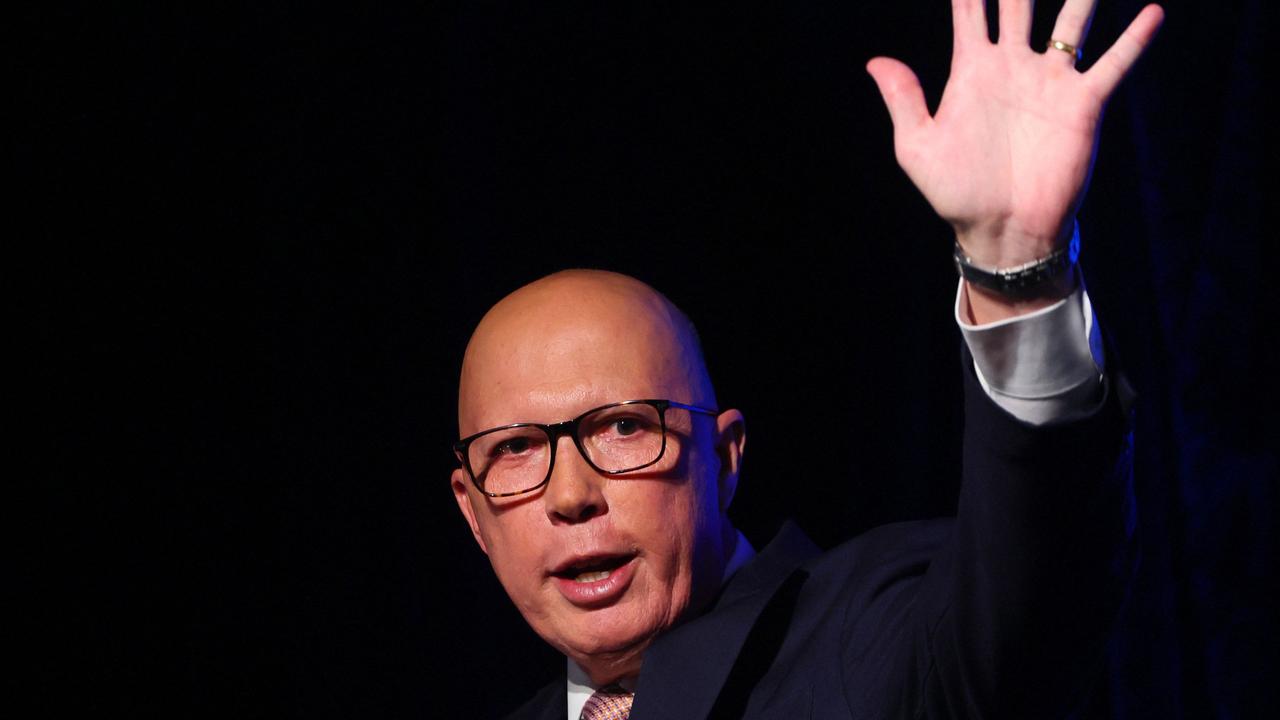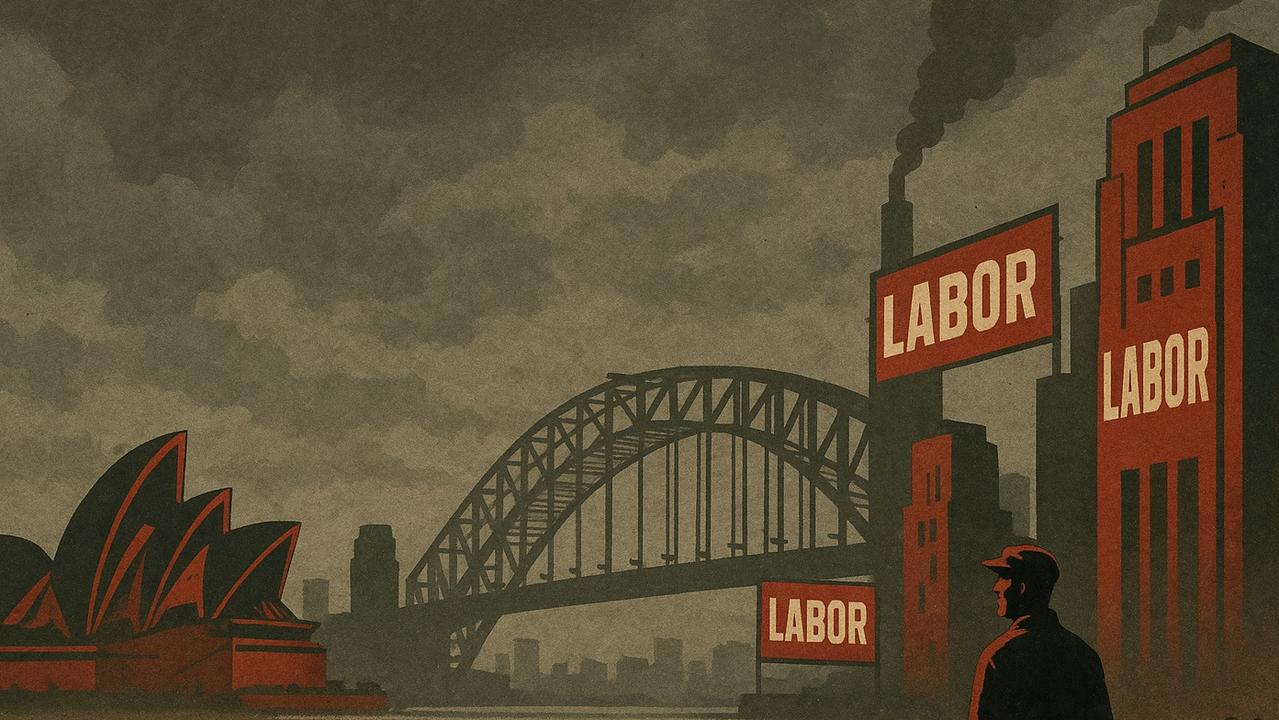Warren Mundine: There are four ways to do better than one Statement
There are four distinct measures which, if adopted, can go a long way to improving the lives of Indigenous Australians, writes Warren Mundine and Vicki Grieves-Williams.
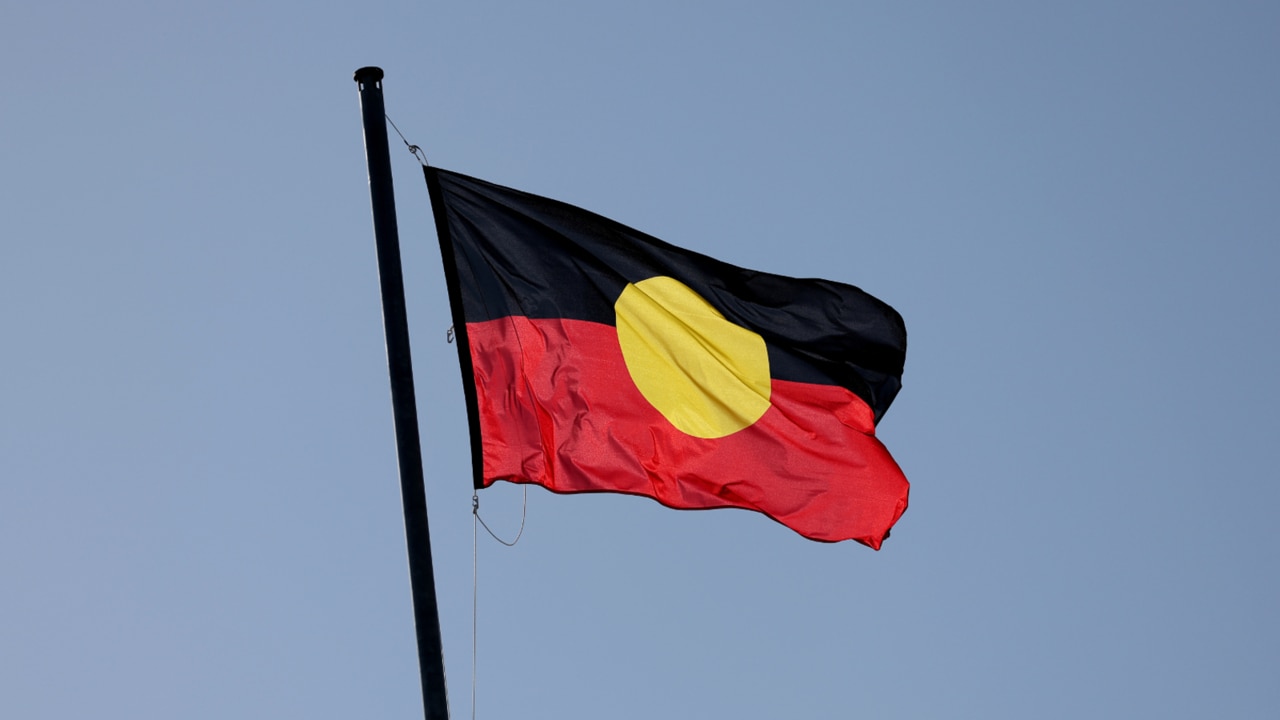
Opinion
Don't miss out on the headlines from Opinion. Followed categories will be added to My News.
The ancient rock central to the lives of the local Anangu, the Yankunytjatjara and Pitjantjatjara people, the traditional landowners of Uluru-Kata Tjuta National Park, is called by them Uluru. A curious fact is that Uluru is mostly hidden from view. It is like a land iceberg with a gigantic 2.5km of its mass underground.
For five years, Australians have known the “Uluru Statement from the Heart” as 439 words commemorated on a canvas surrounded by signatures and artwork.
But these 439 words are the tip of a gigantic iceberg. The breadth of which cannot be understood without a detailed reading of the record, the 14th and final Regional Dialogue on constitutional recognition at which those 439 words were issued.
This record was released by the National Indigenous Australians Agency under the label “Document 14”.
The demands of the 14th Regional Dialogue are not simply the 439 words. This is now very clear, despite the protestations of those who would rather Document 14 (and the 13 before it) had never seen the light of day.
It exists as the expression of the will of those who remained in the meeting. Some were so disheartened they left and sat outside with traditional owners earlier denied entry.
This is important because we’re told the Statement has come from Australia’s nearly one million Indigenous people. In truth it’s the demands of fewer than 250 hand-picked individuals.
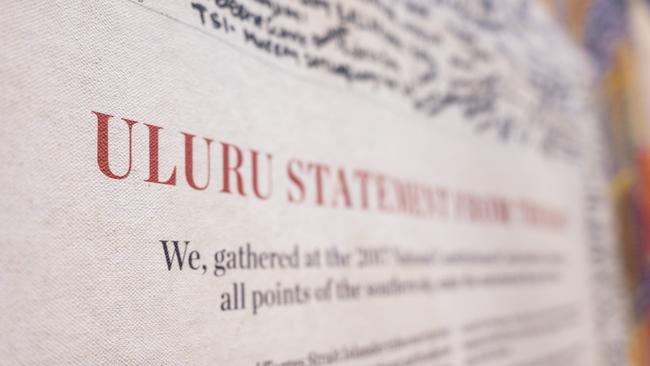
Document 14 spells out in unambiguous detail what the 439 words on the canvas are about and what they are requesting, including the Voice and what is to come after it.
And the demands of this so-called modest request are not modest at all.
Document 14 is steeped in grievance and victimhood. History is misrepresented, written to make Australians feel shame.
And culture is misappropriated, including in the use of the word “Uluru” against the wishes of its traditional owners.
The 14th Dialogue did not arrive at a place that contemplates reconciliation at all but a future of separateness and division, with a Makarrata Commission to speak for all traditional owners and settle their agreements with governments.
This is not our culture. In our cultures, only countrymen and women can speak for country.
Document 14 uses the expression “First Nations” around 60 times, always in the plural because it depicts them as one homogenous, pan-Indigenous group. We are not.
The Oxford Dictionary defines a “nation” as “a large body of people united by common descent, history, culture or language, inhabiting a particular state or territory”.
The word derives from the Latin word “to be born”. When the British first came to this continent there were hundreds of such groups. These are Australia’s first nations.
The word “sovereignty” is also repeated throughout the document. Nationhood and sovereignty aren’t the same.
Nationhood is about belonging and country, with or without legal and civic separateness and authority. There are stateless nations all over the world, not all desire sovereignty.
Document 14 calls for a First Nations sovereignty standing apart from, and in opposition to, Australian sovereignty. How is this possible?
A sovereign state has the ultimate and highest authority over its land and seas. Is Australia to be divided into several hundred sovereign states with only traditional owners participating in their governance?
This would leave 25 million or so others disenfranchised in their own country. Will these sovereign states take on the myriad of government responsibilities and functions, including raising taxes to fund them and armies to defend them?
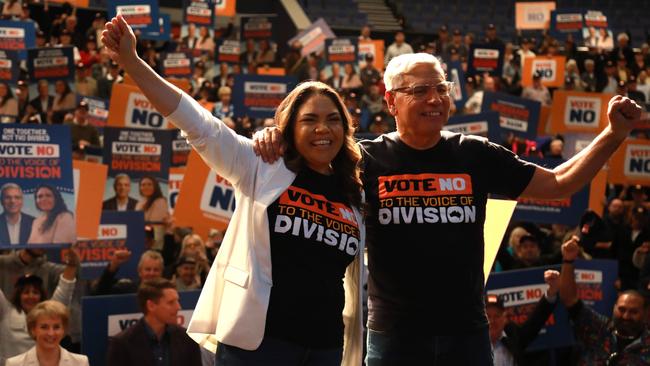
Of course not.
Document 14 imagines Australia will continue, as well as its constitution, but with a constitutionally embedded Indigenous Voice as the fourth arm of government able to make representations to two of the other three.
The Voice is to pave the way for a Makarrata Commission, to whom power will be devolved to settle agreements between all Australian governments and First Nations and to supervise truth-telling about history.
It will be the overlord of traditional owner autonomy, including native title, the overlord of sovereignty and the arbiter of truth.
The core of Australia’s first nations are our kinship systems: rules that underpin all relationships and social organisation, that define each person’s role, rights and responsibilities to kin and country and how they must interact or not interact with each other (which forces people to tread carefully around relationships and to nurture them).
You cannot understand Aboriginal cultures without understanding our kinship systems. Yet the word “kinship” appears not even once in the Uluru Statement, not in the 439 words and not in Document 14.
Under our kinship systems, the universe – which is everything that is known – is divided into classifications called moieties. And everything must be classified.
So when a newcomer enters a community, they’re given a designation which in turn gives them a place and kin, regardless of their origins. Under our cultures, to co-exist in the same community and on the same country we must be part of the same universe.
Document 14 and the 439 word canvas through which it has been “pitched to the Australian people” is a metaphorical declaration of war on modern Australia.
The Voice is the trojan horse through which the attackers, hidden in its belly, will penetrate.
So it’s critical to us that the Voice is resoundingly defeated in the referendum.
What comes after that is more critical.
Thanks to this exercise of “reconciliation”, Australia stands more divided and wounded than it has for some time.
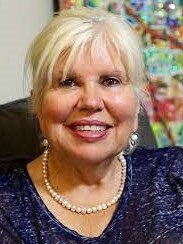
The overwhelming majority of Australians want Indigenous Australians to thrive. They have embraced the dismantling of segregation regimes and discriminatory laws of the past and take no satisfaction in the wrongdoings of history and want Australia to move on together as a united and reconciled people.
And we cannot be truly reconciled until the scourge of disadvantage that affects some Indigenous Australians is ended.
To achieve this we need laser focus on four areas.
Firstly, accountability: where is funding going, what is it being used for and what, if any, outcomes have those who received it actually achieved?
Secondly, education, including kids going to school.
Thirdly, economic participation: jobs, business creation and home ownership.
Fourthly, social change: safe communities and no more turning a blind eye to, or acquiescing to, violence, abuse and destructive behaviour.
These solutions are proven and they’re not complicated ideas at all. But they require courage and determination to implement, something no government or bureaucracy has ever had enough of, or managed to sustain, for long enough.
The Voice is a lesson that there’s no magical wand and pursuing one is a folly and distraction that take us backwards. We hope it’s not a lesson that Australia, and Aboriginal people, are forced to learn the hard way after October 14.
Nyunggai Warren Mundine is Director, Indigenous Forum, Centre for Independent Studies. Co-author Dr Vicki Grieves Williams is Warraimaay and widely published in history, Aboriginal spirituality, philosophy and the connection between history and climate change.



